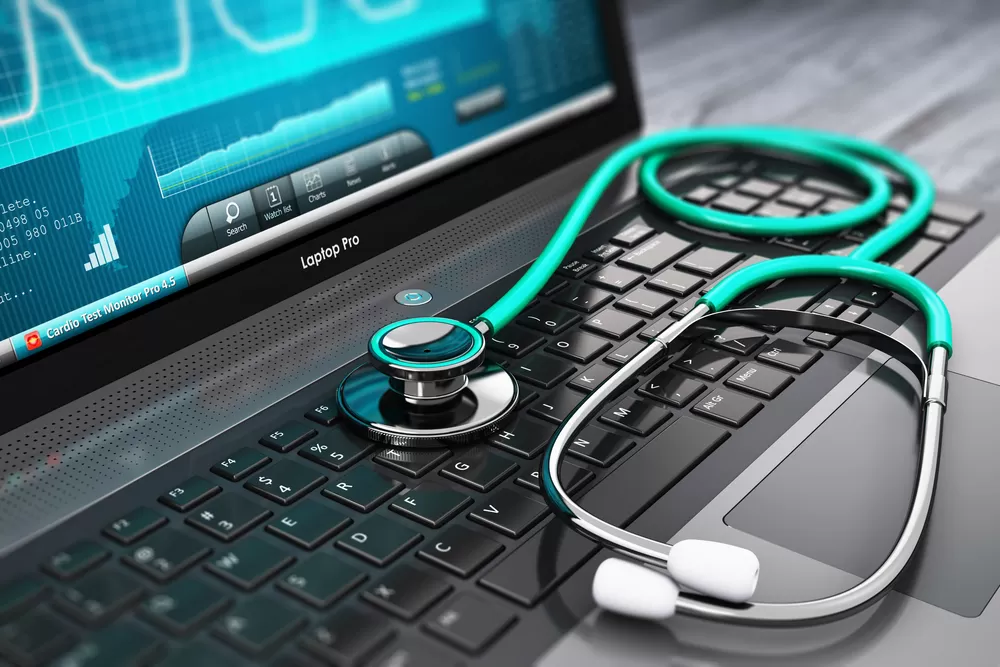In the dynamic healthcare sector, the right HRIS software can make a world of difference. Dive into our curated list of top HR solutions tailored for healthcare facilities and hospitals, ensuring seamless management and enhanced patient care.
Matchr’s Top 6 Picks
Paycor HCM
Paycor HCM is a cloud-based HR software platform that is accessible from anywhere and offers an intuitive user interface designed for ease of use. The software includes features that can help you to manage all aspects of HR, including payroll and other HR tasks. It’s ideal for small or medium-sized organizations.
Pros and Cons of Paycor HCM
Pros of Paycor HCM:
- Interface is user-friendly
- Saves clients time and money
- Keeping information up-to-date is easy
- Employees can access their own pay information
Cons of Paycor HCM:
- Customer support
- Reports
- Lack of visual personalization tools
Vista
Vista offers a range of core HR features from recruiting and onboarding to benefits management, HR processes, employee self-service, and more. The software is designed to be an all-in-one solution for any organization size.
Pros and Cons of Vista
Pros of Vista:
- User-friendly
- The software is easy to learn
- Good customer service
- Intuitive user interface
- Customizable features
Cons of Vista:
- Some features are limited
- Some features are slow
- Module technicalities
BambooHR Software
BambooHR software is an online HR system designed to suit the unique needs of small and medium-sized organizations. To this end, it’s also easily customizable so you can make it work for you.
Pros and Cons of BambooHR Software
Pros of BambooHR Software:
- Software integrations
- Customizable features
- Payroll
- Onboarding processes
- Time management
Cons of BambooHR:
- Some modules aren’t customizable
- Time tracking
- Not robust
- The search isn’t precise
ADP Vantage HCM
ADP Vantage HCM is designed to meet all the needs of medium or large organizations. This all-in-one HR software platform includes customer service to answer any questions and help clients make the best use of the system.
Pros and Cons of ADP Vantage HCM
Pros of ADP Vantage HCM:
- Customizable features
- Reports
- Payroll
- Robust security
Cons of ADP Vantage HCM:
- Tricky setup sections
- Some features could be more user-friendly
- The support team needs to be more knowledgeable
ADP Workforce Now
ADP Workforce Now, also offered by ADP, is similar in many ways to ADP Vantage but is specifically designed for the needs of smaller and mid-sized organizations rather than larger organizations. This is a scalable, all-in-one payroll and HR solution, however, and can grow with your organization.
Pros and Cons of ADP Workforce Now
Pros of ADP Workforce Now:
- Payroll dashboard
- Performance dashboard
- Payroll processing
- Organization
- Time off tracking
Cons of ADP Workforce Now:
- Mobile app
- Customer service
- User-friendliness
- Reporting
Run Powered by ADP
Run Powered by ADP is designed for the needs of smaller organizations that have fewer than 50 employees. The software offers four different modules that can simplify your HR processes: Essential Payroll, Enhanced Payroll, Complete Payroll & HR, and HR Pro. Which module you need depends on your organization’s needs.
Pros and Cons of Run Powered by ADP
Pros of Run Powered by ADP:
- Customer support
- User-friendly
- Tax features
- Software organization
Cons of Run Powered by ADP:
- Plan prices
- Reporting
- Integration with other systems
Benefits of HR Software for Healthcare
For hospitals, the proper management of staff and labor can literally be a matter of life and death. Scheduling problems and employee discontent can affect patients in a direct way, potentially compromising the quality of care and impacting the hospital on many different levels. Good HR software can help hospitals to take care of employees, so employees can focus on taking care of patients.
Ensure Up-to-Date Training
Updated training and certifications are critical for patient outcomes, hospital accreditation, and continuous improvement. HRIS software can help you keep track of training and can alert you when certifications are about to expire. When a learning management system is used, HR software may also be able to assist with certain aspects of training.
Manage Schedules Optimally
Since hospitals don’t close and admission rates can be unpredictable, employee schedules must be managed with care and professionalism. Using HR software for scheduling can help to avoid many issues by generating templates based on previous trends and schedules and by alerting HR professionals to scheduling conflicts or breaches of regulations. Features may also be available that allow employees to check schedules online, improving efficiency.
Simplify Performance Management
Performance management is especially crucial in a hospital setting, so it makes sense to simplify the process as much as possible. HR software can be used to develop 360-degree performance reviews that allow feedback about employees to be gathered from many sources for a more accurate assessment. Since the information is kept within the system, it can also be used to determine training needs and assign training modules.
Track Accidents and Occurrences
Being able to quickly track and retrieve records regarding accidents and other occurrences can provide hospitals with a degree of protection. HR software often comes with features that allow hospital personnel or HR managers to write a report up when a noteworthy incident occurs so that details can be reviewed as needed later. This can help to refute false claims and show a better-rounded picture of what occurred in any given instance.
Recruit Top Talent
Hospital staffing shortages can be a burden when it comes to meeting staff-to-patient ratio requirements and scheduling fairly. Utilizing HR software for recruitment can help to attract some of the top talent in your area, while also assisting with promoting from within. Preventing staffing gaps and employing more capable personnel can improve the way that the hospital runs and boost its reputation.
HR software with ATS options may also assist with background checks and screenings, keeping all of the info in one place for faster hiring decisions. Once a hiring decision has been made, onboarding options can move the employee candidate into a position quickly and reduce the need for double data entry by allowing information to be imported and integrated into payroll and benefits.
HRIS software can help to keep hospital employee information organized while promoting good practices in many areas. It’s important to make sure that you select software that fits your hospital’s unique needs, however. Take the time to research carefully and consider relying on a vendor-matching company to help with your selection.
What HR Software is Commonly Used in Hospitals?
Healthcare organizations have many of the same HR needs as businesses or other types of organizations even as their specific needs are unique. Because of this, hospitals typically use ATS software to meet their hiring and onboarding needs and payroll software for running payroll and for managing benefits, time off, and scheduling. Many choose to use all-in-one comprehensive HRIS software instead so that all needs are met in one platform.
Why Should Healthcare Organizations Integrate HR Software?
Software integrations are important because they reduce the need for manual data entry. You may have other systems that you still need to use and synchronization between different software platforms can reduce errors and help keep all data up-to-date.
What is The Role of Human Resources in Healthcare?
Human resources place a huge role in any organization, including those in the healthcare industry. It’s HR that ensures that employees are paid on time, that the hospital or practice has the best possible employees, that patients are properly billed, and more. Without HR, a hospital or other healthcare organization wouldn’t run smoothly.
What is HCM in Healthcare?
HCM stands for human capital management. In healthcare, this is a software system that helps with everything from applicant tracking, hiring, and onboarding to performance management and improving productivity.
What is HRIS in Healthcare?
HRIS stands for human resource information system and is similar to an HCM in that it functions as an all-in-one HR platform. In healthcare, an HRIS helps to manage all aspects of HR processes, from hiring to payroll and benefits.
Find The Right Software Match
Get matched for free with top HR software.
Looking for HRIS solutions for a specific industry?












